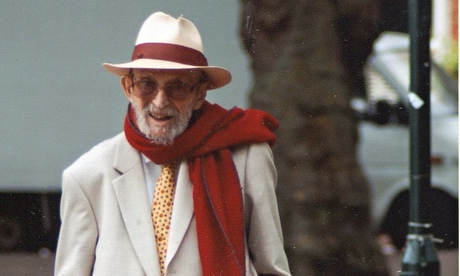
The polyglot bon vivant is a figure more usually associated with the 19th century than the 21st, but Andrew Mango, who has died aged 88, proved that it was still possible to be a scholar - in his case of Turkish studies – and a gentleman. For three decades he was based at Bush House, then home to BBC World Service radio, initially working for the Turkish and French language sections before becoming head of the South East European Service until his retirement in 1986. Successive Turkish ambassadors and others seeking expert advice beat a path to his office door, assured of brilliant conversation over drinks from his well-stocked cocktail cabinet.
Though he had published a couple of books on Turkey for the general reader while still working for the BBC, it was during the long years of his fruitful retirement at his home in Barnes, south-west London, that he produced his most significant work, including a magisterial biography of the founder of modern Turkey, Atatürk (2000), and From the Sultan to Atatürk (2009). The scholarship was impeccable, but some of his historical and journalistic interpretations were controversial, notably his belief that the military coups of 1960 and 1980 had been necessary to avoid the country slipping into civil war, and his assertion that the Armenian massacres of 1915 did not amount to genocide.
When Andrew was born in Istanbul, the Republic of Turkey was a mere three years old. He was the middle of three sons of a successful barrister, Alexander Mango, who was of mixed Italian and Greek origin, and his wife, Adelaide Damonov, a refugee from Bolshevik Russia. Despite the dismemberment of the Ottoman Empire at the end of the first world war, Istanbul was still one of the great cosmopolitan cities of the world and Andrew was soon fluent in a range of languages, including both Ottoman and modern Turkish, English, French and Greek. This enabled him, while still a youth, to get a job as a translator in the press office of the British Embassy in Ankara during the second world war – a post that qualified him for a second-class diplomatic passport.
In 1947 he moved to Britain, to study at London University's School of Oriental and African Studies, culminating in a doctorate in Persian literature. His older brother, Tony, moved to the US, but the youngest sibling, Cyril, followed in Andrew's footsteps, later becoming professor of Byzantine and modern Greek at Oxford University.
Andrew could easily have found a comfortable berth in academe himself, but he was far too interested in politics and international affairs, which made Bush House the ideal niche. He also kept abreast of what colleagues outside the BBC were thinking through his membership of the UK section of the Association of European Journalists. Though a convinced European, he believed Turkey to be better off outside the EU than in.
Until his final illness, Andrew was a regular visitor to Turkey, where he was feted as an author who understood the complexities of the country and its culture. He was awarded several honorary doctorates at Turkish universities, as well as the Turkish Distinguished Service Medal.
In 1956 he married the journalist Mary Muir. She survives him, as do their children, Daphne and Benedict, four granddaughters and two brothers.
• Andrew James Alexander Mango, author, born 14 June 1926, died 7 July 2014

